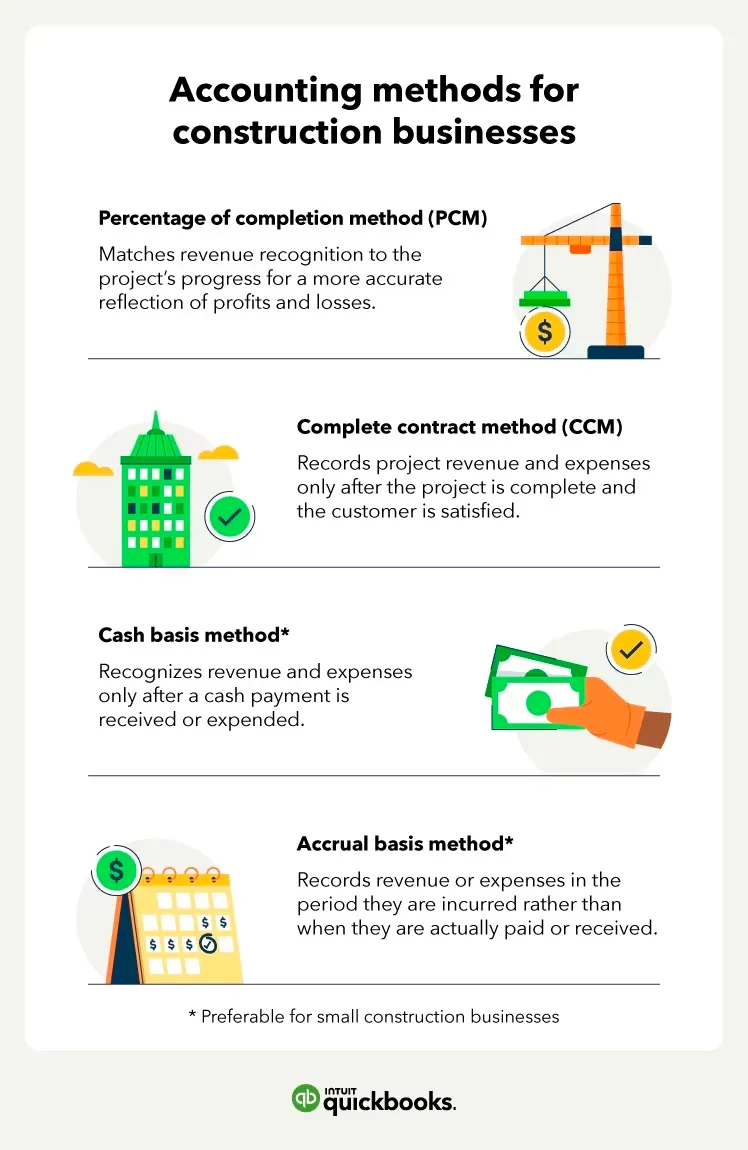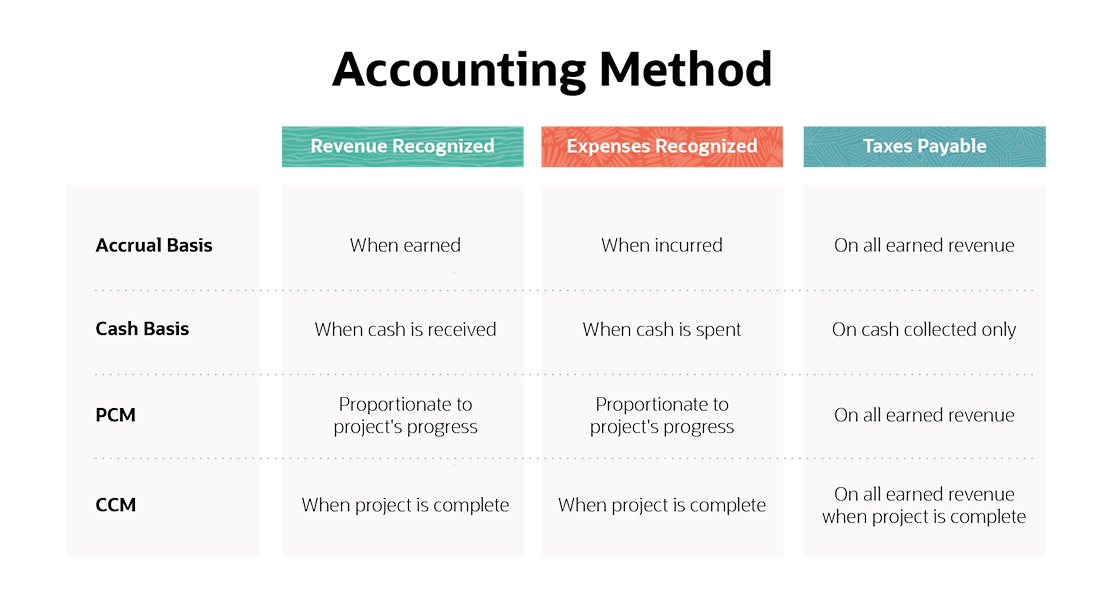How Construction Accounting Can Help You Stay on Track with Your Budget
Understanding the Value of Construction Accounting for Successful Task Monitoring

Duty of Construction Accounting
Building and construction bookkeeping acts as the foundation of economic management in the construction sector, ensuring that tasks are completed within budget plan and monetary objectives are satisfied. construction accounting. This customized bookkeeping method addresses the unique difficulties encountered in construction projects, including varying project durations, rising and fall costs, and numerous stakeholders
One of the main duties of building and construction accounting is to offer exact price estimation and monitoring throughout the job lifecycle. This promotes informed decision-making, allowing job supervisors to adjust sources and timelines successfully. In addition, building bookkeeping improves capital administration by checking accounts receivable and payable, thus making certain that funds are readily available for timely payments to subcontractors and vendors.
Additionally, construction accounting aids in compliance with industry policies and reporting demands. It gears up job managers with the essential economic data to prepare detailed monetary statements, which are vital for audits and economic evaluations. By maintaining clear records, building and construction bookkeeping promotes openness and liability, essential parts in developing trust among stakeholders. Ultimately, the role of construction audit extends past mere economic monitoring; it is important to strategic planning and operational efficiency, driving the success of building and construction projects in a competitive landscape.
Trick Components of Building Accounting

Budgeting develops a monetary structure that overviews project implementation, allowing managers to assign sources efficiently and anticipate possible financial obstacles. Exact cost tracking is vital for surveillance expenses in real-time, aiding to recognize differences between forecasted and actual expenses. This makes it possible for timely adjustments to maintain the job on budget.
In addition, monetary coverage supplies stakeholders with a clear image of the job's financial wellness. Regular records, such as earnings and loss declarations and capital analyses, help with notified decision-making and boost transparency amongst all parties involved.
Additionally, compliance with industry guidelines and bookkeeping requirements is essential. This guarantees that monetary practices are not just reliable yet likewise legal, protecting the company against lawful consequences. By integrating these key components, construction accountancy cultivates an organized approach to managing financial sources, ultimately adding to the successful completion of building jobs.
Advantages for Task Managers
Leveraging effective building accountancy practices provides task supervisors with a wide variety of benefits that enhance both functional performance and financial oversight. One considerable advantage is boosted budget plan management. Exact tracking of profits and costs allows project supervisors to keep track of financial efficiency in real time, making certain tasks continue to be within budget plan and facilitating prompt changes when needed.
Moreover, building audit simplifies capital monitoring, enabling job supervisors to optimize and expect financial demands resource allocation. By understanding money inflows and outflows, they can much better manage payments to subcontractors, staff members, and suppliers, thus preventing pricey delays.
In addition, robust bookkeeping systems give extensive reporting abilities. Project supervisors can create records that use insights right into project productivity, cost differences, and source usage. This data-driven approach fosters notified decision-making, permitting supervisors to identify potential issues proactively and implement restorative actions.
Last but not least, adherence to building and construction bookkeeping requirements guarantees compliance with lawful and governing requirements, lessening the risk of disputes or charges. On the whole, efficient construction accounting equips task managers with the devices needed to drive job success, improve stakeholder confidence, and promote lasting business development.
Common Obstacles in Building Bookkeeping
Several job supervisors experience substantial challenges in construction audit that can prevent job success. Among the main difficulties is the intricacy of tracking several work websites, each with distinct budgets, timelines, and source allowances. This calls for careful focus to detail, which can be frustrating why not check here without a robust accounting system in position.
Furthermore, varying product costs and labor rates can complicate spending plan management, making exact projecting challenging. Project supervisors usually have a hard time to integrate these expenses with actual expenses, causing possible monetary inconsistencies.
In addition, building bookkeeping involves conformity with various regulations, including tax obligation responsibilities and labor laws. Browsing these rules can be difficult, especially for supervisors that may not have a solid accounting history.
An additional substantial difficulty is managing capital, which is critical in the building and construction industry. Delays in invoicing, payments from why not try this out clients, or unforeseen job changes can produce money flow lacks, endangering the task's progress.
Finally, reliable interaction in between project supervisors, accounting professionals, and field teams is crucial. Misconceptions can lead to imprecise financial coverage, even more making complex task management efforts. Resolving these obstacles proactively is crucial for successful construction accounting.

Best Practices for Effective Audit
While browsing the complexities of construction accountancy can be overwhelming, embracing finest methods can dramatically boost monetary administration and task success. One basic practice is keeping prompt and precise documents. Executing robust bookkeeping software program tailored to building jobs can enhance information entry, invoicing, and coverage, reducing errors and conserving time.
Furthermore, establishing a clear budget plan and normal surveillance against this budget plan are vital. Using a system of regular economic testimonials permits job managers to identify variations early, assisting in prompt decision-making. It is likewise vital to different task prices into straight and indirect categories, enabling more clear insights into success.
An additional best technique involves promoting open communication among all stakeholders. Regular updates and collaborative discussions concerning financial condition can guarantee everybody is lined up and informed. Training team in construction-specific audit principles better enhances competency and accuracy.
Last but not least, making sure compliance with relevant audit standards and regulations is non-negotiable. Regular audits and internal testimonials add to openness and liability, building count on with stakeholders and customers. By concentrating on these ideal practices, building and construction firms can optimize their accountancy procedures, inevitably driving task success and monetary stability.
Final Thought
In final thought, construction bookkeeping plays a pivotal function in making sure successful project administration by facilitating precise economic oversight and improving decision-making. By incorporating vital elements such as expense estimation, capital monitoring, and compliance, job managers can navigate usual challenges and leverage best methods for effective bookkeeping. Inevitably, a durable building audit structure not only safeguards budget plan honesty but likewise contributes to the total financial health of building and construction projects, promoting sustainable success within the sector.
By incorporating these vital elements, construction bookkeeping cultivates a structured strategy to taking care of monetary his comment is here sources, ultimately contributing to the successful conclusion of building and construction jobs.
Exact monitoring of expenses and incomes enables job supervisors to monitor financial performance in genuine time, making sure jobs stay within budget and helping with prompt modifications when required.
Project supervisors can create records that offer understandings right into project earnings, expense variations, and resource utilization.Many job managers run into substantial challenges in building and construction accountancy that can hinder project success. construction accounting. Ultimately, a robust construction accountancy structure not just safeguards budget plan honesty yet additionally adds to the overall monetary health and wellness of construction tasks, cultivating lasting success within the sector